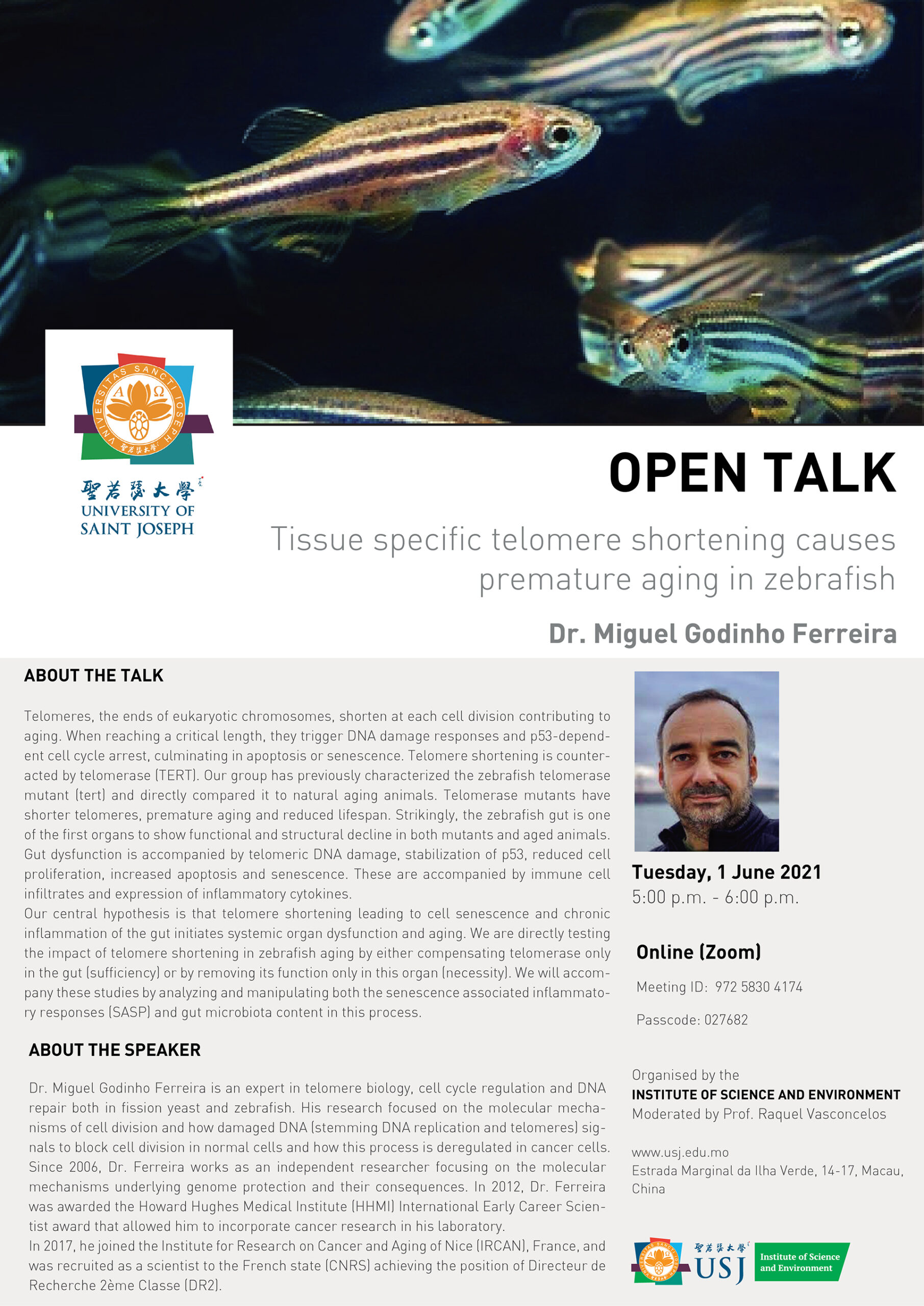Open Talk – Tissue Specific Telmonere Shortening cause Premature Aging in Zebrafish

Open Talk - Tissue Specific Telmonere Shortening cause Premature Aging in Zebrafish
01
Jun
The Institute of Science and Environment of USJ will hold an online open talk on “Tissue specific telomere shortening causes premature aging in zebrafish” on the 1st June 2021.
About the Talk:
Telomeres, the ends of eukaryotic chromosomes, shorten at each cell division contributing to aging. When reaching a critical length, they trigger DNA damage responses and p53-dependent cell cycle arrest, culminating in apoptosis or senescence. Telomere shortening is counteracted by telomerase (TERT). Our group has previously characterized the zebrafish telomerase mutant (tert) and directly compared it to natural aging animals. Telomerase mutants have shorter telomeres, premature aging and reduced lifespan. Strikingly, the zebrafish gut is one of the first organs to show functional and structural decline in both mutants and aged animals. Gut dysfunction is accompanied by telomeric DNA damage, stabilization of p53, reduced cell proliferation, increased apoptosis and senescence. These are accompanied by immune cell infiltrates and expression of inflammatory cytokines. Our central hypothesis is that telomere shortening leading to cell senescence and chronic inflammation of the gut initiates systemic organ dysfunction and aging. We are directly testing the impact of telomere shortening in zebrafish aging by either compensating telomerase only in the gut (sufficiency) or by removing its function only in this organ (necessity). We will accompany these studies by analyzing and manipulating both the senescence associated inflammatory responses (SASP) and gut microbiota content in this process.
About the Speaker:
Dr. Miguel Godinho Ferreira is an expert in telomere biology, cell cycle regulation and DNA repair both in fission yeast and zebrafish. His research focused on the molecular mechanisms of cell division and how damaged DNA (stemming DNA replication and telomeres) signals to block cell division in normal cells and how this process is deregulated in cancer cells. Since 2006, Dr. Ferreira works as an independent researcher focusing on the molecular mechanisms underlying genome protection and their consequences. In 2012, Dr. Ferreira was awarded the Howard Hughes Medical Institute(HHMI) International Early Career Scientist award that allowed him to incorporate cancer research in his laboratory. In 2017, he joined the Institute for Research on Cancer and Aging of Nice (IRCAN), France, and was recruited as a scientist to the French state (CNRS) achieving the position of Directeur de Recherche 2ème Classe (DR2).
Details:
Date: Tuesday, 01 June 2021
Time: 5.00 PM – 6.00 PM
Zoom Link: https://zoom.us/j/99219299187?pwd=b2drazdmekZPMGF0R3g4OWFWL0g5UT09
Meeting ID: 972 5830 4174
Passcode: 027682
Organised by: Institute of Science and Environment
Moderate by: Prof. Raquel Vasconcelos










